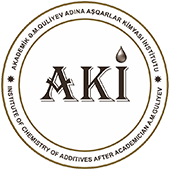Association seen in men and women for higher peanut consumption with reduced risks of total stroke, ischemic stroke, cardiovascular disease
FRIDAY, Sept. 10, 2021 (HealthDay News) — For men and women in Japan, eating peanuts is associated with reduced risk of ischemic stroke and cardiovascular disease, according to a study published online Sept. 9 in Stroke.
Satoyo Ikehara, Ph.D., from the Osaka University Graduate School of Medicine in Suita, Japan, and colleagues examined the association between peanut consumption and risk of cardiovascular disease among 74,793 participants aged 45 to 74 years, from the Japan Public Health Center-based Prospective Study, who completed a lifestyle questionnaire, including the validated food frequency questionnaire.
The researchers identified 3,599 strokes and 849 cases of ischemic heart disease during a median follow-up of 14.8 years. Among men and women, there was an association for higher peanut consumption with reduced risks of total stroke, ischemic stroke, and cardiovascular disease. After adjustment for confounding variables, including age, sex, smoking, alcohol consumption, perceived stress level, and physical activity, the multivariable hazard ratios for the highest versus the lowest quartiles of peanut consumption were 0.84 for total stroke, 0.80 for ischemic stroke, and 0.87 for cardiovascular disease; the associations for hemorrhagic stroke and ischemic heart disease were not statistically significant. These associations were seen in both sexes.
“The beneficial effect of peanut consumption on risk of stroke, especially ischemic stroke, was found despite the small quantity of peanuts eaten by study participants,” Ikehara said in a statement. “Adding even a small amount to one’s diet could be a simple yet effective approach to help reduce the risk of cardiovascular disease.”
Abstract/Full Text (subscription or payment may be required)
https://consumer.healthday.com


